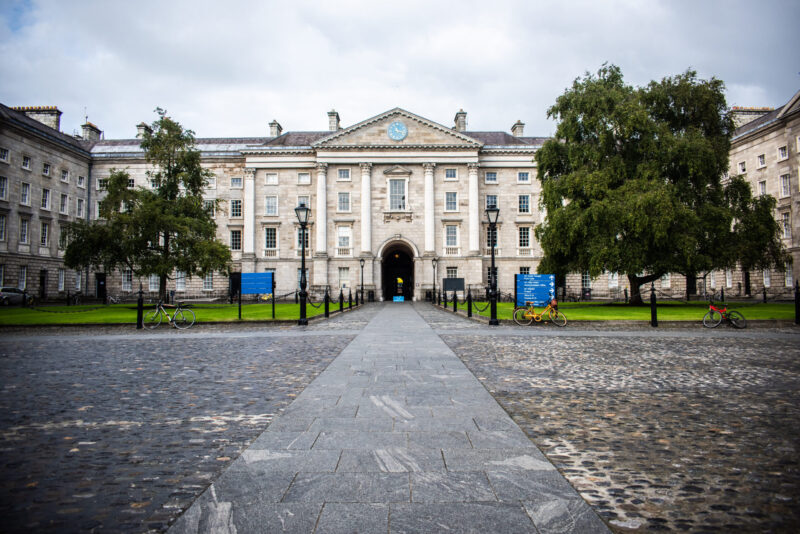In their judgement on Prof Sarah Alyn-Stacey’s disqualification, the Visitors found that her interests and that of the electorate were affected by the Interview Committee’s decision to block her from the race, The University Times has learned.
In their judgement – seen by The University Times – the Visitors, Chancellor Dr Mary McAleese and the Judicial Visitor, Judge George Birmingham, did not reject the decision to disqualify Alyn-Stacey from the race. However, they disagreed with the Appeals Committee’s decision that the Interview Committee’s decision had not “directly and adversely affected the appellant’s interests in the process, or was very likely to do so”.
The Appeals Committee said, according to the Visitors judgement, that “the procedures and standards including the rating system and indicators of what is expected under each of the three criteria as outlined in the Interview Guide were fair, consistently applied and in accordance with the statutes”.
It also argued that she had not raised a serious issue which had directly and adversely affected the appellant’s interests in the process, or was very likely to do so.
While the Visitors saw “no basis for the suggestion that the Interview Committee strayed beyond its statutory remit in this regard”, it did diverge from the Appeals Committee on the matter of whether or not Alyn-Stacey’s interests were directly and adversely affected.
“It seems clear to us, almost to the point of being beyond argument, that deciding whether a candidate may proceed to contest the election directly affects that individual’s interests and, if the decision is that the candidate may not proceed to the election phase, that it is a decision that adversely affects the candidate’s interests”, the Visitors wrote.
“While less clear-cut”, they added, “it seems to us that the decision also affects the interests of individual electors, since the decision will determine the composition of the field of candidates who will present themselves for election and from whom the elector will chose”.
The statutes state that “to go forward for election a candidate must have a prima facie case”, meaning that a candidate can only be rejected if they cannot provide evidence that they meet a certain set of criteria.
According to the statutes, the criteria are “significant academic standing”, “evidence of capacity for management and administration such as is required in an educational and equivalent institution” and “evidence of leadership skills and of the ability to represent the College externally”.
The Interview Committee found that Alyn-Stacey did not meet the second two criteria: “evidence of capacity for management and administration such as is required in an educational or equivalent institution” and “evidence of leadership skills and the ability to represent the College externally”.
The committee rejected Alyn-Stacey’s example of setting up the Centre for Medieval Studies, saying that it had not raised “significant funds” and also argued that her “experience is very much internal within Trinity college, with not enough exposure in terms of university leadership with institutions outside of the University”.
An interview guide for the committee – seen by this newspaper – laid out a large number of “indicators” for interviewers to look out for, to decide whether or not the candidate met the requirements for each of the statutory tests.
For examples, in looking for evidence of capacity for management and administration, committee members were told to look out for a “track record in putting systems and processes in place to deliver complex goals/projects”, “proven experience in the management and development of staff” and “experience in delivering through others”.
In looking for evidence of leadership skills and the ability to represent the College externally, committee members were told to look out for “evidence of academic and business leadership and governance roles, “capacity for inspirational leadership and an ability to contribute to the strategic direction of the University and Education”, the “ability to bring people with them” and to make “the complex, simple”.
In an email statement to The University Times, Alyn-Stacey said: “It should be a cause of concern to the College community that the Visitors’ (and IFUT) found that my interests and those of the electorate have been affected by my disqualification.”
“Such a finding raises serious questions about the integrity of the election and the spectre of Tweedism is clearly on the horizon”, she added. “IFUT, which called my elimination ‘undemocratic’, has called for an urgent review but I am not aware that this is being heeded and certainly not before the election.”
Trinity declined to comment for this article.







